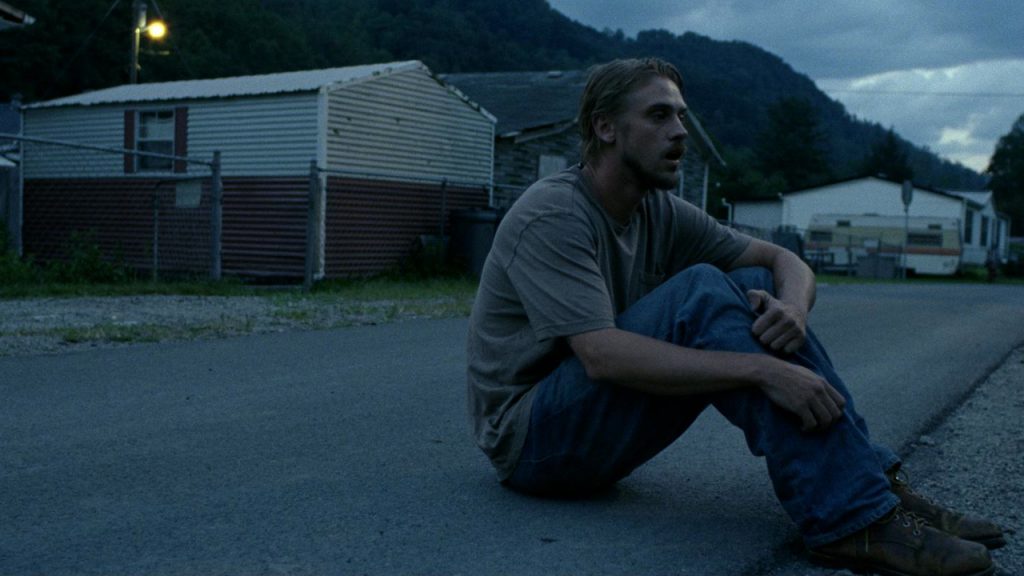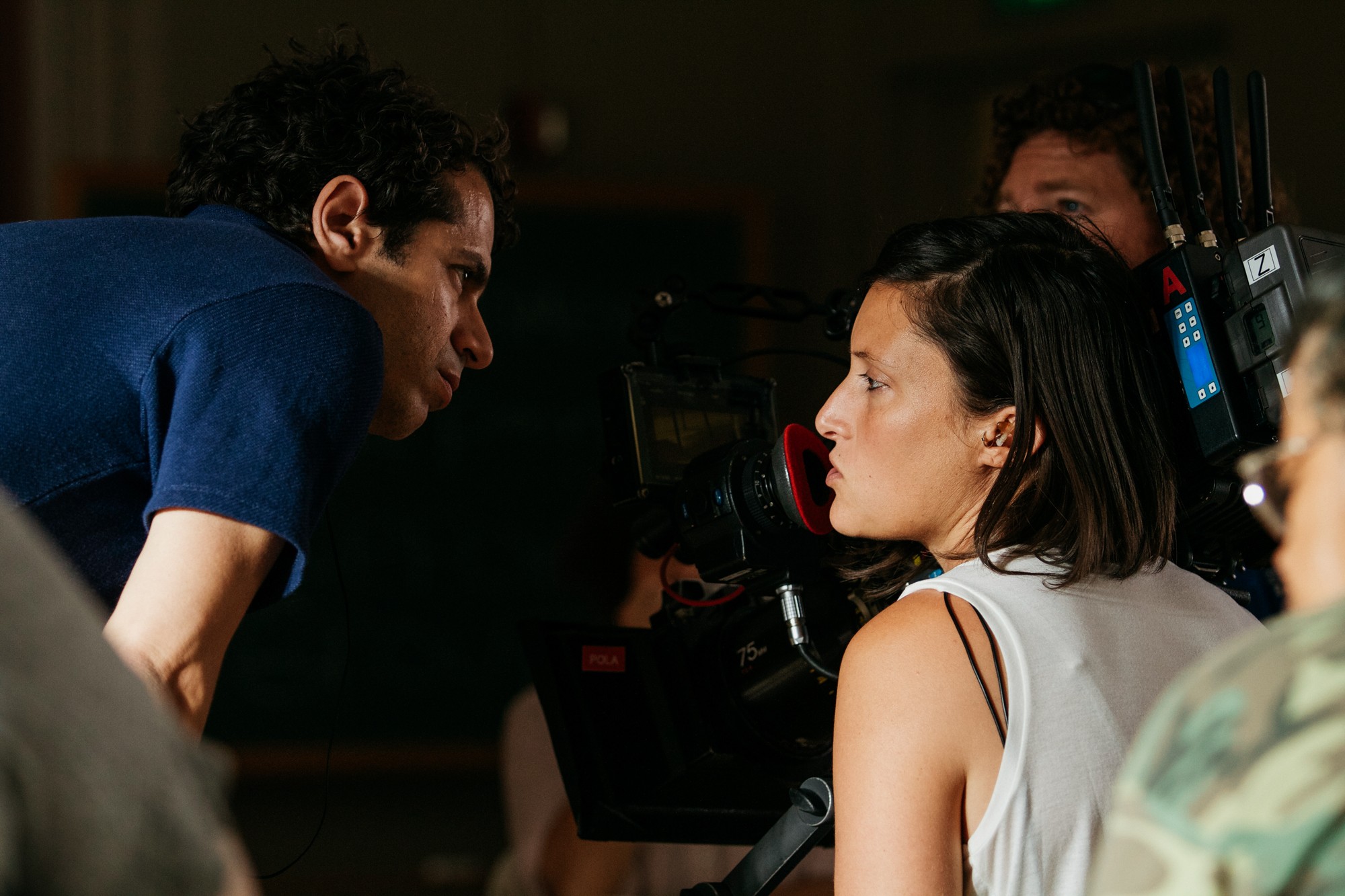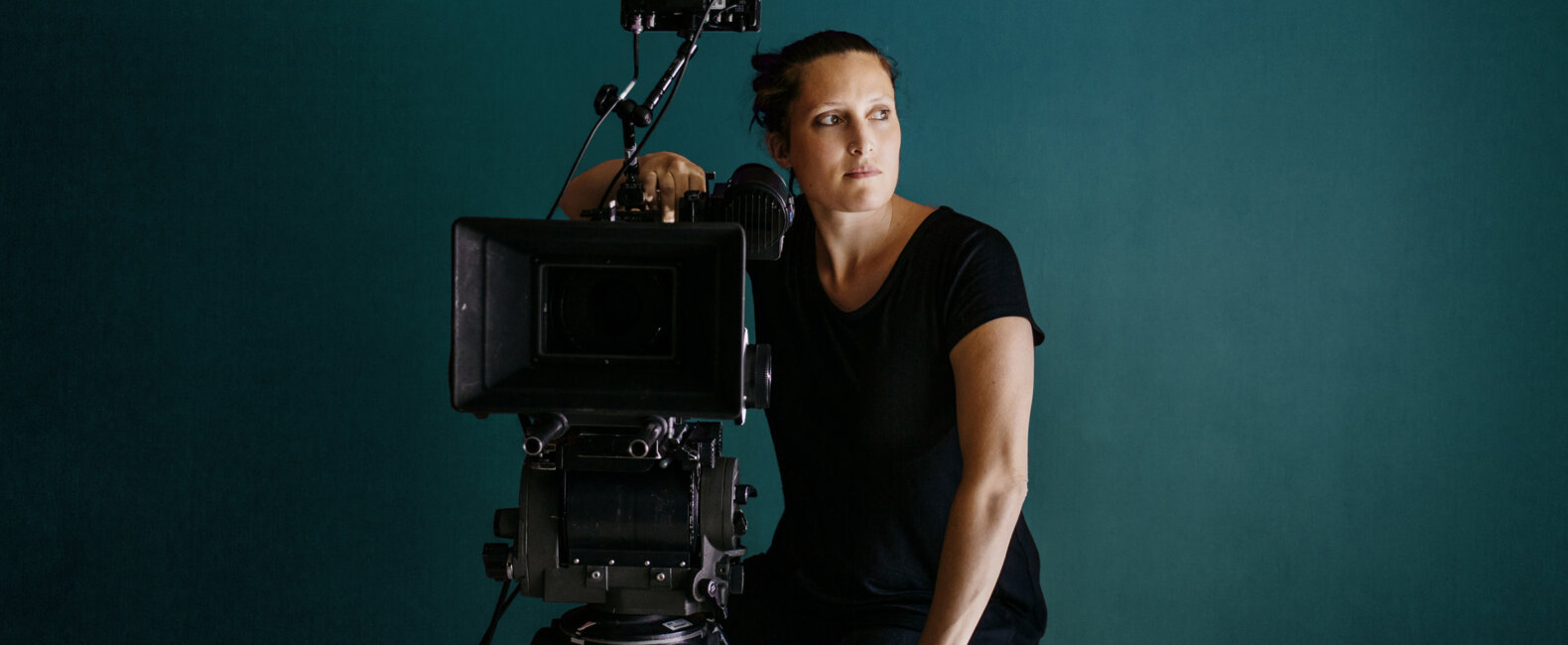There is a point at which most creatives wonder if they’ll ever get where they’re going. Usually it comes along after they’ve invested a number of years, a lot of effort, and a substantial amount of money. There doesn’t seem to be a way forward, and there doesn’t seem to be a way back. In story terms, you might call it a dark night of the soul. For Rachel Morrison, ASC this point came about after she spent two and a half years directing photography for a reality show called The Hills.
“I felt like, ‘Well, here I am. I’ve just gone to school for two years to become a narrative cinematographer, and I’m shooting reality television…’ I felt further than ever from where I wanted to be.”
Since then, Rachel has gone on to DP multimillion-dollar narrative films, including Black Panther. Her work on Mudbound made her the first female DP to receive an Oscar nomination. But while Rachel’s reel is undeniably impressive, it’s her story that we find so inspiring. Her ability to “take the plunge,” as she described it — to push past where she was and start making the work she wanted to make. “You have to challenge yourself, or you’ll never get to the next level,” she told us. “If you’re taking baby steps, it’s going to take a very, very long time to get where you’re trying to go.”
Here’s Rachel.

When you first picked up a camera, did you know right away that you were hooked?
It was a little more subtle than that, but I’ve always messed with cameras. My mom took family photos with an old Olympus SLR. And I remember when I was seven or eight, I turned that camera around on my parents and anyone else who’d let me take pictures of them.
I stuck with it; and when I went to NYU, it was initially for photography. I think by that point I knew I was interested in cinematography. But the film program was very director focused, and I wasn’t ready to give up photography just yet. I ended up double majoring in photography and film — until someone finally beat it into me that those were two completely different career paths.
At some point you have to choose; otherwise you risk becoming a jack-of-all-trades and a master of none. I remember coming to this intersection where I had to choose between two things I loved very deeply. I ultimately chose film for two reasons. First, I realized that film is a much more collaborative existence, and I really enjoy collaborating with people. And second, there were tons of photographs I found hugely impactful, but they never brought me to tears. There were certain films, however, that caused me to fully, emotionally break down.
What happened after NYU?
When I got out of school, it was 2000, and I was in New York in the wake of the first Internet boom. For a hot second, there was money to go around. I got to travel and shoot, and I thought, Oh my god, this is amazing. Then 9/11 happened and the floor bottomed out. If you weren’t incredibly established — and sometimes even if you were — you were out of work. Art was not a priority, understandably. In the wake of something like that, art feels like a bit of a luxury.
Ultimately, art would be our salvation, but it took years for people to realize that. So I went from getting paid to shoot cool, interesting things for a living, to shooting reality TV. I never wanted to be there, so I applied to AFI on a whim. I thought, If I get in, maybe I’ll go. It was a chance to study with a bit more focus than I had in my undergrad.

Was AFI a good experience?
It was an incredible experience. It really depends on what you need, though, and where your strengths and weaknesses are. I was a decent technician already, but AFI made me a much better technician. The most critical thing it gave me was confidence in my own abilities. Especially as a female DP when there are so few of us, you need to have faith that you know your shit. If you’re confident, people will treat you with respect.
If you’re thoughtful about the work you do, you’ll succeed. You just need to accept that you’re going to get second-guessed a lot. That’s the nature of the game. Be confident in your decisions and you’ll be fine. The second you start to waver, though, the second you start to second-guess yourself…there’s no time for indecision in this industry. You have to move fast. If you pull a light off the truck, use it. If you’re pulling stuff off the truck and not using it, your crew is going to resent you for that. As long as you are kind and courteous and know your shit, you will eventually rise to the top.
Ironically, like most people who go back to school, I had so much debt after I got out of AFI that I found myself doing reality TV again. I was shooting a show called The Hills, which was at least lit reality. And in a weird way, my work on The Hills paved the way for the dramatic narrative work I do now.
So shooting The Hills wasn’t as fulfilling as you needed it to be?
My first season on the show, I was excited by the new challenge of lighting for 3 cameras and 270 degrees. But by the second season it had become repetitive. Even though I was earning a living and paying off my loans, I felt like, Well, here I am. I’ve just gone to school for two years to become a narrative cinematographer, and I’m shooting reality television. Even if it’s lit and beautiful-looking reality television, those aren’t the stories I’m creatively helping to envision. I felt further than ever from where I wanted to be. I worried The Hills was going to be a bad mark on my résumé and make it harder for me to get any traction in the narrative world.
I was so close to doing what I wanted to be doing, but the content wasn’t there. They weren’t stories I wanted to tell. I wasn’t making anyone cry. I knew all along that it wasn’t where I wanted to stay, but a day finally came when I had to let go of the safety net and see where I landed.
So how did you pull yourself out of your Hills period? How did you get traction?
Really, you just have to take the plunge. What happened was I got offered a commercial at a good rate with a good company. When I asked one of the producers of The Hills if I could take a week off to make this commercial, she kind of freaked out. She basically said if I took the commercial, I was done on The Hills. I didn’t like being on such a short leash so I said, “Good luck with the rest of the show,” and I left. The truth is, I didn’t think she would call my bluff. I thought I would take the commercial and still have a job the next week. But she did call my bluff, and the next week I didn’t have a job. Then I was depressed because I felt replaceable. But in the end, it was the best thing that ever happened to me.
The hard part, though, was that for the first year after I left The Hills, 90 percent of the calls I got were for work just like it. Imagine sitting at home, unemployed, in debt, and turning down work that would pay better than what you were making before. You hear about directors who take these huge chances, maxing out their credit cards to make their dream movie. This was my version of that. Passing on well-paying gigs because I knew, ultimately, they wouldn’t get me any closer to where I wanted to be.
That never stops, by the way. I’ve been offered bigger movies, but they haven’t been right for me. It’s about being patient, not caving. If you do a halfway decent job at something you don’t want to be doing, then for the next two years of your life, those are the only kinds of scripts you’re going to get.
So I guess my only advice to people is this: If you do have a focus, if you know what your focus is, then try to stay true to it. Of course, sometimes you don’t know. I was recently offered the opportunity to direct. That wasn’t something I ever set out to do, but I figured it doesn’t hurt to try it because you never know if you’re going to fall in love with something and be great at it. But if you know you don’t want to be doing something, then don’t even start down that road.
I’d say that seven out of ten DPs are happy just shooting. They’re not particular about whether it’s a comedy or horror or drama. I’m just not one of those people.
So when I shoot, I need to see something I can tap into emotionally. That’s the jumping-off point for every creative decision I make.

I read in an interview you did with Kodak that your approach to your craft is more emotional than technical.
Yes.
It makes sense, then, that there is a limited number of projects you can get excited about, as opposed to someone who just wants to put pretty images on the screen.
That’s totally true and very astute. I never thought about it that way, but that’s exactly it. Some people get fulfillment just from pulling off shots they’ve never done before. That’s exciting for me too, but it’s not enough. When I read material, I need to be able to connect to it. Otherwise I won’t be able to do a good job on it, and I won’t fully enjoy what I’m doing.
How does emotionally connecting with a story affect the way you shoot it?
A lot of the projects I’m drawn to are very character driven. They have a level of subjectivity to them. I’m looking to translate a character’s emotional experience in a very subjective manner, to make it an immersive experience for an audience member. That’s why I don’t have any interest in shooting Men in Black 5, or whatever number they’re on.
Four.
I have no interest in shooting Men in Black 4 because I can’t fully identify with that world. I enjoy the ride, but I never quite leave the theater seat. When a character is grounded in some kind of emotional reality, then I’m fully on the ride. And I’ll leave the theater bawling fiercely or having fallen in love. Those are the things you hope for in a movie-going experience. So when I shoot, I need to see something I can tap into emotionally. That’s the jumping-off point for every creative decision I make.

In your bio you talk about being most inspired when you’re out of your element. Has pushing yourself outside of your element helped you to move forward in your career?
It’s all about having faith that things will work out. I remember these guys in undergrad who’d get asked if they’d ever shot underwater before. They’d say, “Oh yeah, totally, all the time.” They’d never shot underwater before, but they’d quickly teach themselves how to swim, and then they’d knock it out of the park. Now they have this great commercial for their reel. If somebody asked me if I’d ever shot underwater before, I’d be like, “No, I haven’t, but I think I can probably sort it out.” That’s not how you get a job. I don’t believe in telling people you’ve done things you haven’t done. But it’s that mind-set: You have to challenge yourself, or you’ll never get to the next level. If you’re only ever taking baby steps, it’s going to take a very, very long time to get where you’re trying to go.
Do you have a particular style as a cinematographer?
Yes and no. There are DPs like Robbie Richardson — his name is synonymous with a look, and he sort of applies that look to every movie he shoots. I don’t think I have anything like that, for better or worse. If there’s something people tend to see in my work, it’s naturalism. Things feel real even when they’re not. People often mistake my lighting for natural lighting, but it rarely is. I also think that’s indicative of the movies I choose to shoot. They’re not these stylized, hyperreal science fiction stories. Although, I’d be stoked to shoot science fiction. So I might say my style is a naturalism with a focus on character. Let’s call it subjective naturalism.
That sounds like a real thing.
It’s settled then. My style is subjective naturalism.
Do you think it’s important for cinematographers to develop a style?
No. It’s good to be consistent with the choices you’re making, but that doesn’t necessarily mean shooting everything the same way. This might sound contradictory, but it’s good to be able to do one thing really well, while at the same time it’s important to be versatile.

What do you think about heavily stylized videos?
I think those kinds of films do very well in the commercial sphere. Commercial work is all about how glossy you can make it, using the coolest trick or toy or lighting technique. But those aren’t the same tools we use to tell narrative stories. And there’s no greater way to tank an immersive narrative experience than by calling attention to yourself as a cinematographer.
If people walk out of the theater talking about how great the movie looked, you’ve sort of failed. They should be talking about how moved they were and how great the film was. A film that works as a film is a job well done. Sometimes I have to remind myself of that because you do fall prey to the ego. Fruitvale Station, for instance; nobody is walking away from Fruitvale Station talking about what a beautifully shot film it is. They’re talking about what a poignant and meaningful film it was. I have to remind myself that that means I did a good job. If the movie works, your contribution to it was a success.


















































































